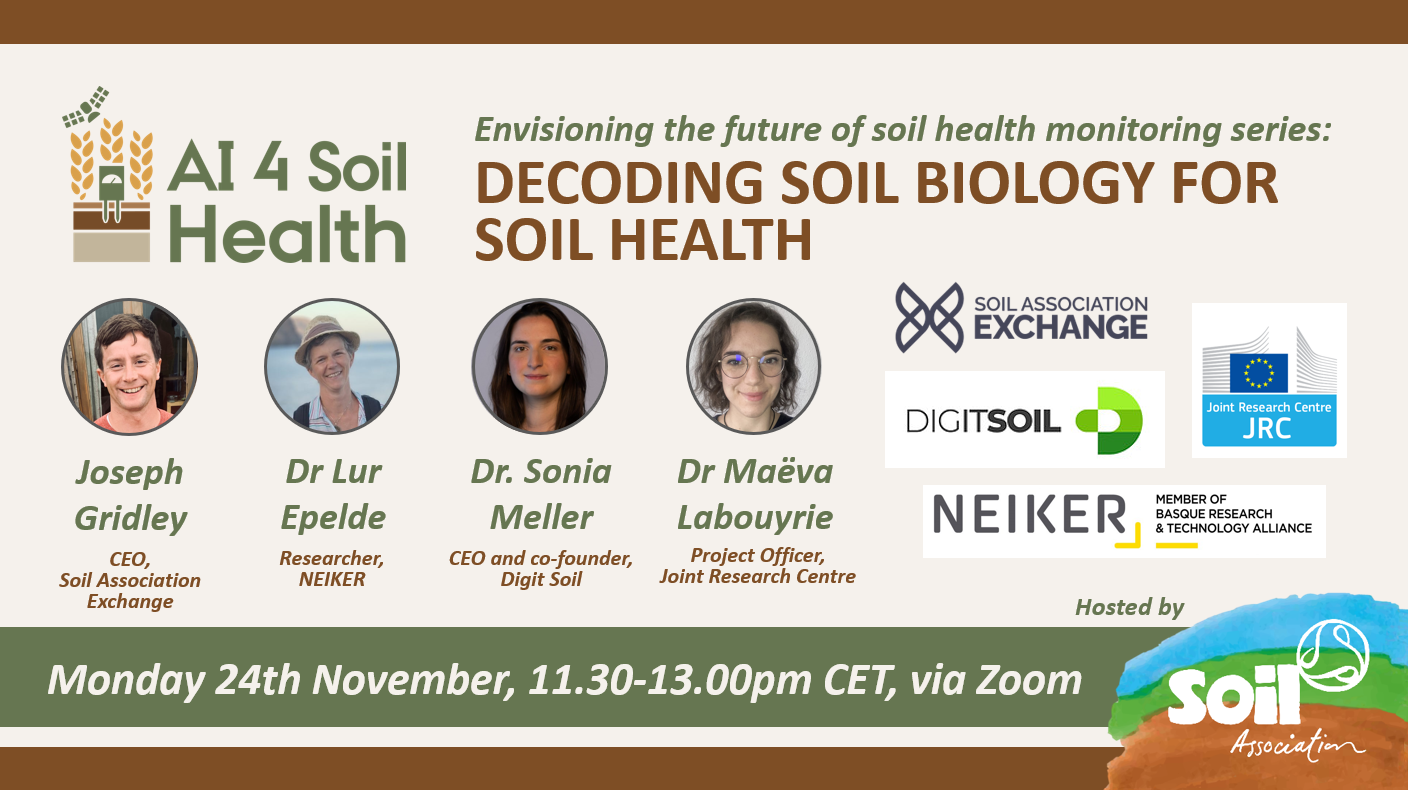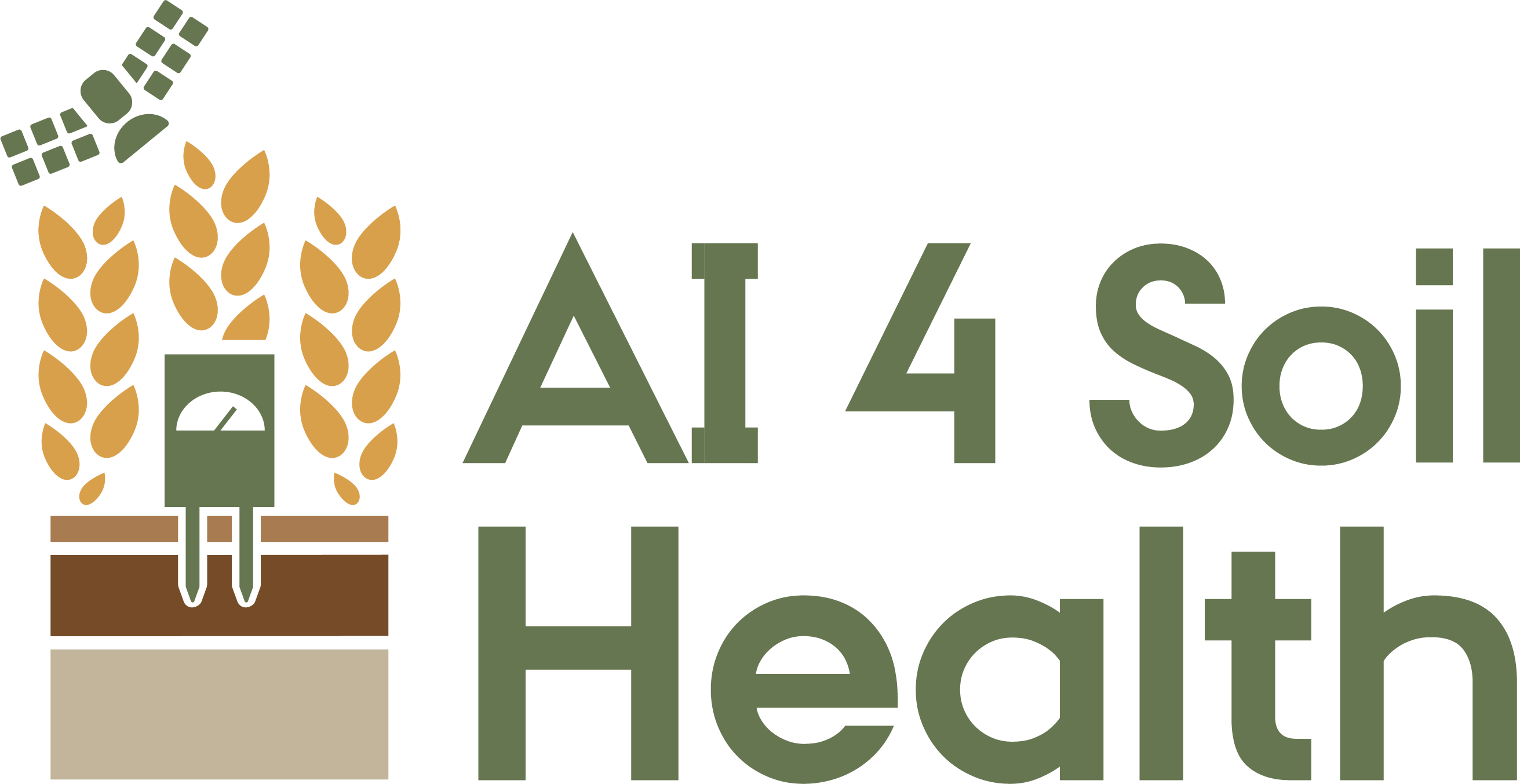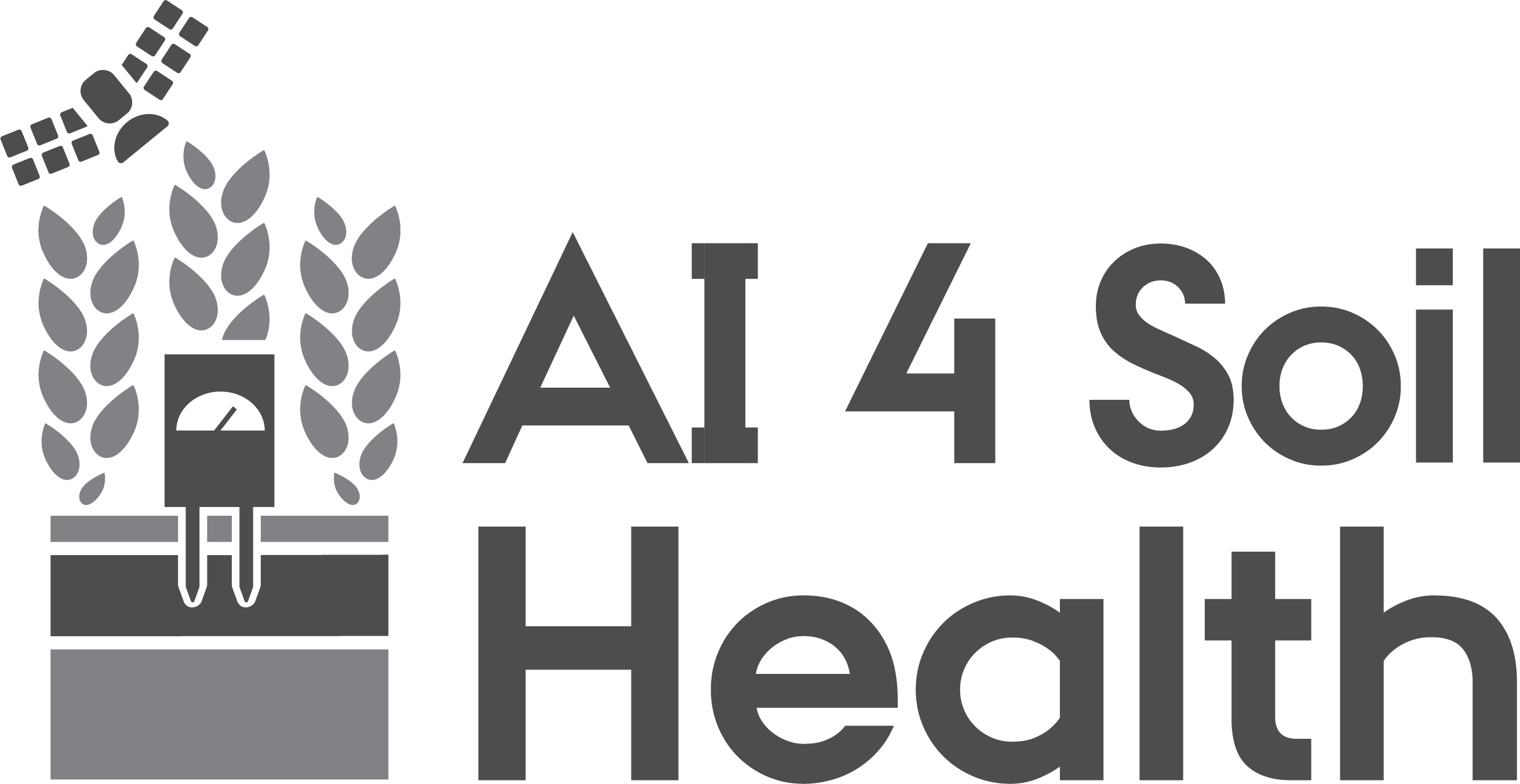
- This event has passed.
Decoding soil biology for soil health

Join the fifth and final session in the AI 4 Soil Health project webinar series “Envisioning the future of soil health monitoring”.
Book your ticket via Eventbrite
Decoding soil biology for soil health
Part of the “Envisioning the future of soil health monitoring” series for AI 4 Soil Health (AI4SH), hosted by Soil Association.
How can biological indicators, e.g. microbial communities and enzymatic activity, give us a clearer picture of soil health? Can real-time soil biology measurements combined with satellite data and models turn microbial signals into actionable intelligence for farm nutrient management? How do land use, climate and vegetation shape soil biodiversity and function across Europe, and what does that mean for monitoring and policy?
Sign up to this free webinar to join leading experts to discuss these topics and learn more about how soil science is advancing our understanding of the living processes that sustain healthy soils.
In this webinar we are joined by AI 4 Soil Health project partners and experts to discuss the latest research and innovations in decoding soil biology – from measuring microbial diversity and enzyme activity to transforming biological data into practical tools for soil health management. The panel will explore how biological indicators can enhance soil monitoring, how technology is bridging the gap between science and farm management, and what large-scale studies reveal about the relationships between soil life, land use and climate across Europe.
We are joined by:
- Dr Lur Epelde, Researcher at NEIKER-Basque Institute of Agricultural Research & Development and the coordinator of its Soil Microbial Ecology Group
- Dr. Sonia Meller, CTO and co-founder of the Swiss startup Digit Soil
- Dr Maëva Labouyrie, Project Officer for Soil Biodiversity at European Commission Joint Research Centre (JRC). Her work supports the EU Soil Observatory (EUSO), a platform providing knowledge and data flows necessary to safeguard and restore soils.
- The webinar is being chaired by Joseph Gridley, CEO of Soil Association Exchange. Exchange unlocks science and data to help farmers and businesses measure, understand, and improve their environmental impact.
What to Expect?
Lur Epelde (NEIKER) will provide an overview of the advantages and limitations of using soil biological properties as indicators of soil health, presenting the tools employed in the AI4SH project and the ongoing work being conducted across 13 pilot sites.
Sonia Meller (Digit Soil) will explore ongoing work in Soil Enzymatic Activity, addressing the critical gap between science and farm management by focusing on dynamic nutrient fluxes, not static measurements. She will demonstrate their new portable device (SEAR) that reduces complex biological analysis time from weeks to hours. Digit Soil merge this real-time soil data with satellite imagery and farming practices to produce a predictive application that gives farmers actionable intelligence on fertilizer timing and amount, helping to optimize yield and reduce nutrient loss.
Maëva Labouyrie (JRC) will present the Lucas Soil Biodiversity 2018 survey and share insights into the distribution patterns of bacterial and fungal communities and their functions across Europe, exploring their relationships with environmental drivers and soil pressures. She will also discuss the key implications of this work for soil biodiversity assessment, highlighting current gaps and future directions. See here for a recent publication:
Ask your questions to Lur, Sonia, Maëva and Joseph through a live Q&A, and give live interactive thoughts and feedback through Mentimeter.
This webinar series for AI 4 Soil Health explores how AI, open data and new research is transforming soil health monitoring and management across Europe. Find out more about the AI 4 Soil Health project: https://ai4soilhealth.eu/about and watch our previous webinars: Envisioning the future of soil health monitoring – Youtube.
Who should attend?
- Policy makers and civil servants who are engaged in soil-related strategies, projects, or regulatory initiatives.
- Research leaders and scientific experts involved in soil monitoring programmes, Living Labs and the development of research and innovation policy recommendations.
- Practitioners and innovators working on soil health and using or testing new monitoring approaches.
- Stakeholders from civil society, NGOs, and grassroots movements with an active interest in soil health.
- Private sector representatives contributing to or benefiting from soil health innovations.
Find out more:
Maëva’s 2023 publication linking soil bacterial and fungal communities to soil properties, climate and vegetation cover, with key implications regarding soil biodiversity assessment, for gaps and avenues. Patterns in soil microbial diversity across Europe | Nature Communications
Tutorial on how to operate Digit Soil’s soil enzymatic activity reader and a further publication.
Soil Association Exchange: By combining digital tools with expert agricultural advice, Exchange provides clear insights across six key areas — Soil Health, Water, Carbon, Biodiversity, Animal Welfare, and Social Impact — helping farmers access tailored support and funding to drive sustainable, profitable farming that benefits both nature and the bottom line. For corporates, it offers a trusted, data-driven way to invest in on-farm improvements and report impact with confidence. Learn more: Profitable and sustainable farming | Soil Association Exchange

